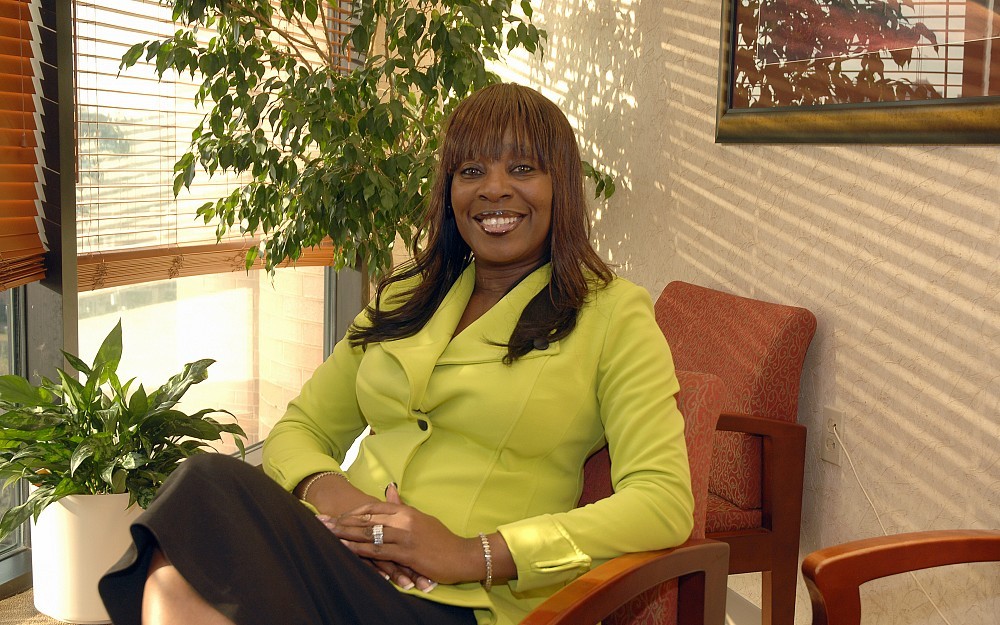
Patient Finds Relief After Years of Urinary Incontinence
For four years, U.S. Navy veteran Michelle Bless suffered silently with severe urinary incontinence, the inability to control the timing and frequency of urine release. The experience left her severely depressed, socially reclusive and wearing protective pads 24/7.
"I felt so ashamed and isolated that I begged my adult children to run basic errands, like grocery shopping, for me so I didnt have to leave the house. I didnt have a life anymore, Bless recalls.
She credits her faith in God with leading her to Ayman Mahdy, MD, in November 2011. Mahdy is a urologist/surgeon with UC Health who specializes in female incontinence and an assistant professor at the UC College of Medicine.
"No one should suffer with long-term incontinence, because it can be cured in most cases. Each patients scenario must be individually evaluated and addressed to find the true cause of the problem. This allows us to create a customized solution that will result in the best outcome for the patient, says Mahdy.
Through a comprehensive medical evaluation, Mahdy found the source of Bless problema hole in the wall of her urethra which caused urine to flowuncontrolledout through her vagina instead of being held in the bladder reservoir.
Mahdy utilized cystoscopy and natural orifice (vaginal) surgery to repair the hole, restoring Bless ability to hold urine for voluntary release.
"I want to tell the whole world about how Dr. Mahdy helped me. I used to cry out of depression, but now I cry out of joy, recalls Bless when reflecting on her care with UC Health. "Dr. Mahdy completely changed my life by making me continent after so many years of being miserable. I feel like a whole person again.
Since her surgery in the fall of 2011, Bless has had no problems with urine leakage. She is back to her volunteer work as an evangelist through Christ Emmanuel Christian Fellowship in Walnut Hills and mentoring abused teenage girls through 20/20 two Saturdays a month. She also published an autobiography called "Out of the Darkness: The Michelle Bless Story, detailing how she rose above a life of physical and mental abuse herself. Michelle Bless is a pseudonym she assumed when writing the book to respect her familys privacy.
"I am no longer a prisoner in my own home. I am back out in the worldliving my life and enjoying time with my husband, my children, grandchildren and friends, adds Bless.
» Appointments and More Information
To contact UC Health Urology, call 513-475-8787 or visit ucphysicians.com to learn more. Mahdy sees patients at the UC Health Physicians Offices in West Chester and Clifton. He is fellowship trained in voiding dysfunction and female urology and offers both medical and surgical management of a full spectrum of voiding dysfunction and urinary incontinence problems.
UC Health Urology operates a West Chester-based video-urodynamics laboratory, equipped with advanced technology and a well-trained talented staff. This laboratory is mandatory for evaluation of complex cases of voiding dysfunction and urinary incontinence. It will also serve patients with neurogenic bladder and failed previous incontinence surgeries.

Ayman Mahdy, MD, PhD, is director of female urology and voiding disorders for UC's urology division.
Related Stories
Memphis, Tennessee news: UC researchers pioneering research to...
May 9, 2024
Memphis, Tennessee television station Action News 5 featured research from the University of Cincinnati's Laura Ngwenya and Jed Hartings that is testing the first treatments for spreading depolarizations, abnormal brain activity also called a "brain tsunami."
South Bend, Indiana news: Stopping migraines before they start
May 8, 2024
The University of Cincinnati's Vince Martin spoke with South Bend television station WNDU on a recent study that found people who suffer from migraines might be able to predict when one is coming hours before symptoms even start.
WVXU: A look at alcohol, de-alcoholized wine and everything in...
May 7, 2024
The University of Cincinnati's Michael Schoech joined Cincinnati Edition for a panel discussion about current rates of alcohol consumption and the growing number of non-alcoholic alternatives.
